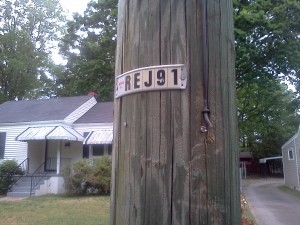Yesterday there was yet another massive traffic jam on I-40 in RTP. Commutes that usually take 30 minutes took three times as long. I was fortunate that it was a day that I work from home, but thousands of others weren’t so lucky. I don’t know anything that could have better validated my earlier thoughts on RTP being doomed.
Today’s N&O editorial echoed my earlier thoughts, though I found a contradiction. The N&O says RTP seeks to urbanize, yet it’s still touting its “large amounts of green space.” You can’t have it both ways! You can’t have density and not have density. Right now RTP has little to no density and the odds of it achieving any are slim to none.
In short, RTP is a losing model. RTP may die a slow death, but it will die. After sixty years of service, it’s time for RTP to retire.
The park’s model has become an American classic – large, woodsy, campus-like settings where companies and agencies have plenty of elbow room. Its founders took advantage of the synergy derived from the surrounding constellation of major universities.
Chemicals, computers, pharmaceuticals, telecommunications, environmental sciences – these have been the park’s backbone, and its prosperity has driven growth throughout the Triangle, especially in North Raleigh, Cary and southern Durham.
But if companies like IBM, Nortel and Glaxo were the anchors, the park has had to adjust as those companies have evolved or (as in Nortel’s case) faded from the scene in the face of new technologies. And what used to be an attractive sense of isolation from hectic commercial corridors has become, in some people’s minds, more detriment than advantage.
via RTP reset – Editorials – NewsObserver.com.

